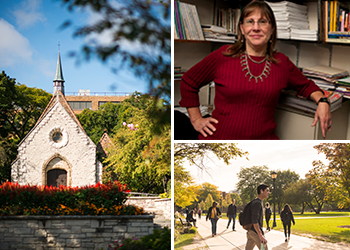MAKING A DIFFERENCE: THE SOCS BLOG
How the Pandemic Is Producing Future Capital Defendants
By: Jesse Cheng, Department of Social and Cultural Sciences
 Graphic Source
Graphic Source
If socioeconomic injustice creates the conditions for criminal violence, then what lies ahead for the most vulnerable children of the pandemic? As a death penalty scholar and former capital defense lawyer in the US, I know that the so-called worst of the worst killers are really those who grew up the worst of the worst off in society. But the coronavirus is grooming a cohort of potential capital defendants in a league of their own.
The attorneys who will represent these human beings will seek not to excuse the crime, but to explain it to jurors who will pass sentence. Because Covid-19 is a phenomenon of unwell bodies, good capital defenders will highlight the pandemic’s societal effects in destroying the brains and bodies of their future clients. Step by step, the defense will trace multiple ways that today’s crisis is amplifying the physical and neurological damage long recognized as forerunners of violent behavior.
What might lawyers discover when they investigate this period in their clients’ childhood?
An economy in sharp contraction produces an indefinite food shortage on kitchen tables. The ended deprivation of nutrients stunts the development of frontal lobes.
As tensions in the domicile explode more frequently, bruises appear on temples, fractures on growing skulls. Injured bodies flee to the streets, where they inhale addictive and neurotoxic vapors to self-medicate. The repeated numbing, psychic and physiological, corrodes brain pathways critical for memory formation as well as for impulse control.
Small bodies grow bigger and become over-surveilled. Armed, uniformed figures – hyper-sensitized in the current hour – grind boot heels deep into the nerve bundles of necks.
When middle school children are caged for offenses they did or did not commit, juvenile detention facilities impose solitary confinement under the guise of social distancing. Sensory deprivation punches holes in parts of the neural architecture involved in healthy social functioning.
Out on the other side, moratoriums on eviction relief expire. Perpetually elevated levels of cortisol eating away at the hippocampus ratchet up yet another notch. Young minds aren’t aware of this – but when the flesh, forcibly exposed to the open air, is assaulted, violated, and kicked aside, it feels the cold and the pain, keenly. In the future, defendants will see geographic depictions of their multiple encampments and relocations on diagrams splattered with sticker dots and crisscrossing lengths of yarn. Lawyers will present these to jurors as “chaos maps.”
Behind closed doors, adolescents voluntarily apply gun barrel to head, rope to throat, poison to tongue, or blade to blood vessel. Suicidal ideations forged in the crucible of the pandemic’s stressors may not be successfully realized, though they may leave a permanent mark in the pulverization of gray matter, the ache of shredded ligaments.
Then there’s the novel coronavirus itself, with its disproportionately punishing effects on impoverished, colored bodies.The microbes enter bloodstreams that are diabetic, lungs that are already inflamed, and immune systems that have long been compromised. This is because in the current moment, as in every moment since cells separated into organs in utero, poverty’s polluted environments deposit BPA, PFAS, and phthalate molecules in bronchial tubes and hormone-regulating systems.
Oxygen saturation levels plummet as chests burn in the waiting areas of overcrowded and underfunded free clinics. Wet heat radiates from crania, baking the contents within. And young hearts yearn for the touch of a loved one’s hands now buried in the earth.
Even as capital defenders advocates are already anticipating the pathways between global pandemic and lived pain, there remain questions to be answered and questions yet unknown. What are the long-term neurological effects of Covid-19? What does “recovery” from the virus actually mean? What lines of investigation will reveal themselves only with history’s hindsight? No one can now foretell how much more agony the pandemic will bring to already ravaged bodies.
What’s virtually certain is that society will one day seek to deprive some of these human beings of their very life breath through the nation’s severest criminal sentence. When this happens, it will be another small instance of how, years from now, the coronavirus will continue to heap the most suffering on those who already hurt the hardest.
Jesse Cheng is Assistant Professor in the Department of Social and Cultural Sciences at Marquette University.





